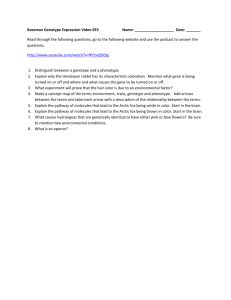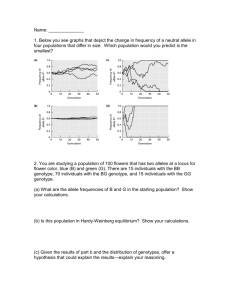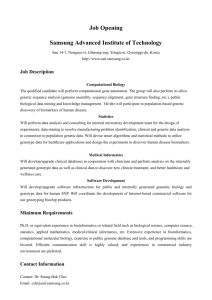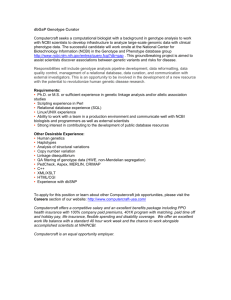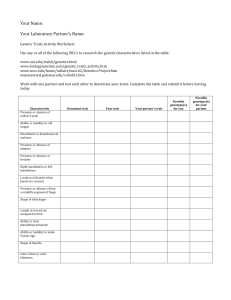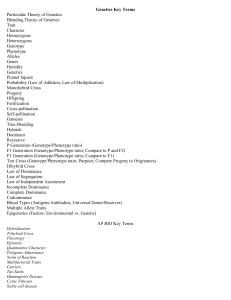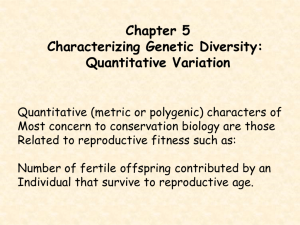Developmental Psychology - the scientific study of how and why
advertisement
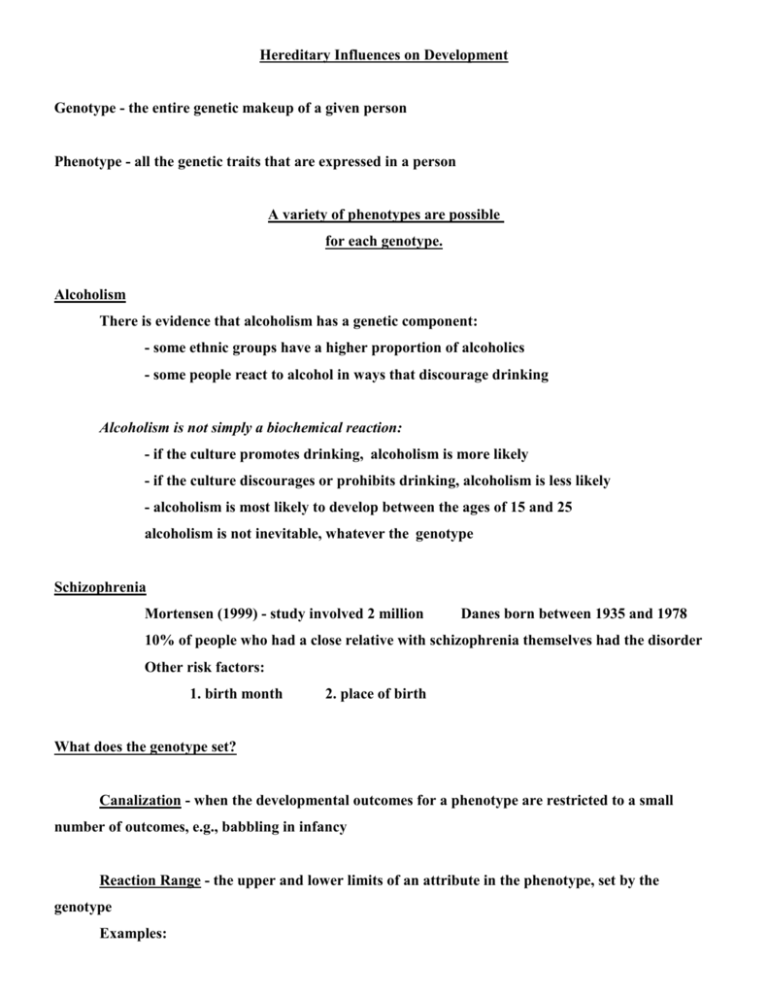
Hereditary Influences on Development Genotype - the entire genetic makeup of a given person Phenotype - all the genetic traits that are expressed in a person A variety of phenotypes are possible for each genotype. Alcoholism There is evidence that alcoholism has a genetic component: - some ethnic groups have a higher proportion of alcoholics - some people react to alcohol in ways that discourage drinking Alcoholism is not simply a biochemical reaction: - if the culture promotes drinking, alcoholism is more likely - if the culture discourages or prohibits drinking, alcoholism is less likely - alcoholism is most likely to develop between the ages of 15 and 25 alcoholism is not inevitable, whatever the genotype Schizophrenia Mortensen (1999) - study involved 2 million Danes born between 1935 and 1978 10% of people who had a close relative with schizophrenia themselves had the disorder Other risk factors: 1. birth month 2. place of birth What does the genotype set? Canalization - when the developmental outcomes for a phenotype are restricted to a small number of outcomes, e.g., babbling in infancy Reaction Range - the upper and lower limits of an attribute in the phenotype, set by the genotype Examples: - physical changes at adolescence - graying at ... - IQ Heritability - the trait variability in a population that is determined by variations in genetic inheritance Heritability measurements take into account both genetic and environmental factors. - if a genetically similar population shows marked individual differences, they must be the result of environmental factors - if a population within a similar environment shows marked individual differences, they must be the result of genetic factors Genotype/Environment Interaction Scarr (1992) - the genetic uniqueness of individuals results in the creation of unique environmental experiences Passive genotype/environment correlation - musical parents may both pass on their musical genes and provide a home environment that is rich in musical experiences Evocative genotype/environment correlation - genetically influenced attributes may affect others' responses: a cranky baby or a nonresponsive baby may discourage playful interaction Active genotype/environment correlation - children choose environments that are compatible with their predispositions: sociable children are likely to search out companionship Genetic differences become more influential across development as individuals mature and do their own "niche-picking." Shared environmental influences - experiences that individuals living in the same home share, e.g., parental interests, church attendance, Non-shared environmental influences - experiences that individuals living in the same home do not share, e.g., sibling relationships, family income (over time) - the impact of genotype may lead to microenvironments, environmental characteristics that are specific to a child
